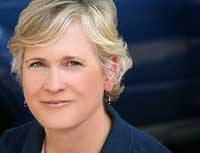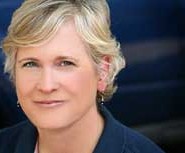 Today, we’re delighted to feature an interview on the BookBuzzr Blog with Sandra Beckwith. Sandra uses workshops and one-on-one coaching to help individuals and organizations learn how to generate their own publicity. In addition to an online e-course called “Book Publicity 101: How to Build Book Buzz,” she publishes a free book promotion newsletter, Build Book Buzz. Before becoming a full-time writer, Sandra was a national award-winning publicist.
Today, we’re delighted to feature an interview on the BookBuzzr Blog with Sandra Beckwith. Sandra uses workshops and one-on-one coaching to help individuals and organizations learn how to generate their own publicity. In addition to an online e-course called “Book Publicity 101: How to Build Book Buzz,” she publishes a free book promotion newsletter, Build Book Buzz. Before becoming a full-time writer, Sandra was a national award-winning publicist.
Sandra, can you describe yourself in 140 characters?
I’m an author and former publicist who teaches authors how to become their own book publicist.
So an author completes writing his book and decides to bring it to market on a shoestring budget. What are the most basic things that this author needs to do?
The most important thing is to be very, very clear about your book’s target audience. I’m surprised by the number of authors who tell me their audience is “all women over 25” or “all mothers.” It’s hard to focus your marketing when you’ve got such a broad audience. Narrow your audience down as far as you can — “women between the ages of 25 and 45 who work outside the home, are single, and don’t have children” or “mothers of schoolage children who are exhibiting risky or antisocial behavior,” for example.
Creating a marketing plan is also an essential step. The planning process helps you figure out which tactics will have the greatest impact on your book promotion goals (and it will help you create specific goals!).
What is the absolute worst thing that an author can do when she is building buzz for her book?
I’ll pick two things. The first is paying for advertising without first exhausting all free options — publicity, social media, etc. The second is doing what you see others do without stopping to think about whether it’s a good fit for your book. One of the authors in my book publicity e-course complained that podcasting wasn’t helping her sell books. When I asked if her target audience listened to podcasts, she said that she didn’t know. When I countered with, “Then why are you doing podcasts?” she replied that it’s what everyone else was doing. Take the time to learn what your target audience reads, watches, and listens to and then get your book title there.
How effective is Twitter in building book buzz?
If you use it properly, it can be very effective. If you don’t use it wisely, it’s a waste of time. For example, when I visited an author’s Twitter page this week, I saw nothing but messages about the author’s book. You want to use Twitter and other social networking sites to establish relationships, connect with people, position yourself appropriately, and so on — and a string of never-ending marketing messages won’t do that for you. This author is an example of someone who heard that Twitter helps people promote books, then jumped on it and started writing promotional messages about her book. She should have taken the time first to (1) learn about how to use it effectively and (2) study others who were already doing it so she could learn the good AND the bad from them.
What about book contests and giveaways? Do these work?
They work best when you’re clear on your goals and thoughtful with your execution. Is your objective to generate more Twitter followers so that you have a platform in place when your book comes out? Then you’ll want to make following you on Twitter a contest requirement and you’ll want to offer a prize that’s relevant to your book. And is your target audience one that’s motivated by freebies? Not everyone is!
What about Facebook fan pages. Is there any value in that?
Absolutely. They offer another way for your work to be found online and another way for you to engage and connect with your audience. The nice thing about fan pages is that they can be found by people who aren’t Facebook members. You can include links to additional in-depth content, etc., on your book’s Web site, too. If you’re going to take the time to create one, make it as robust and informative as possible.
Do you think blog book tours work? How should an author setup a blog book tour?
Blog tours definitely help. It’s hard to provide a quick answer to your how-to question, though. One of the most important things to note is that you want to start this process months before your book comes out, establishing relationships with bloggers serving your target audience. It works best when you set up a tour with bloggers who are familiar with you and your work already, but you can also do a lot of “cold calling” and have an effective tour. Offer content in different formats — a Q&A, a book excerpt, a guest blog posting, etc. Make it as easy as possible for the targeted bloggers to participate.
What are your thoughts on book-trailers in video format that are put up on YouTube? How effective are these?
You know, their effectiveness depends on a lot of things, including whether your audience uses YouTube or has the ability to sit still long enough to watch a 2-3 min. video. Younger audiences are big YouTube users so if your book targets young adults, it should be in your bag of tricks IF you produce one that’s age appropriate for your audience. If you wrote your book for senior citizens, it’s not the best use of your time and resources.
Creating a decent book trailer takes a fair amount of time and skill and most authors I know or have worked with aren’t really good with this visual medium. I generally recommend that you put your time and energy into tactics that will take your particular book the farthest the fastest. A book trailer is nice to have, but is it really the best choice for your book considering how much or little time you have for book promotion? Sometimes it is, sometime it isn’t. It’s worth noting, too, that while publishers often produce these for authors, they will admit that they have no idea if they help with book sales or not.
You recommend a DIY approach to building book buzz and publicity. Is this a lot of work? What is the average amount of time an author (who has attended the Book Publicity Workshop) needs to spend on publicity and promotion?
I only recommend it for authors who can’t afford to spend $3,000-$5,000/month for a publicist. Some authors can do this, but many can’t. It’s not a lot of work, but it does take time and focus. I recommend learning as much as you can about it before your book comes out — read information online, read a book, take a course like mine. Once you understand the basics, including how to reach your target audience, you can do a lot in just 3-4 hours a week.
Most authors have a motivational problem when it comes to building book buzz. They work hard at it for a month or two. And then the honeymoon period ends. Or they think that nothing is happening and decide to give up. What is the average time frame that an author needs to work before she begins to see results in the form of actual book sales? What can an author do to stay motivated and in the game long enough to see success?
I think the key to this is knowledge. If you invest some time upfront learning about the tools and tactics that will help you reach your target audience and you implement them with some intelligence, you’ll see enough early successes to keep you motivated to continue. I have promoted my own books for years — through reprints, etc. (But I really like doing this, and I understand that others don’t.) I encourage my students to plan for at least 12 months.
Can you tell us a little more about your workshop – Book Publicity 101: How to Build Book Buzz.
It’s an online course that teaches authors how to create and implement the various tools and tactics used in book publicity and promotion today. They learn about everything from pitching themselves to the press as experts to planning and scheduling virtual book tours, using social media effectively, getting radio and TV interviews, using public speaking to promote their books, and so on. It’s a good mix of instruction on how to use both traditional and “new” media to build book buzz.
It’s a four-week program taught in a forum format, with students coming and going on their own schedules. There’s homework each week, and I provide thorough, honest, and constructive feedback on each assignment. Many of my students take the class months (often years!) before their book comes out so they’re well prepared for the book launch. Others take it for books that have already been out for a few years. Some take it at the book proposal stage to help them figure out what to put in the “marketing” section of the proposal.
What kind of success can an author expect if he or she attends the workshop? Can you talk about some existing client success stories?
Each student’s success depends on how much effort they put into the class and whether they use what they’ve learned after the class is over. Feedback I get most often is that the course helped them focus their promotion efforts and it forced them to be thoughtful and strategic about how they use whatever time and money they can allocate to the process. More specifically, several have been on national TV talk shows while one of my students was inspired by the class to write an essay on her book’s topic for the Christian Science Monitor that generated even more media interviews, with outlets that included the New York Times and MSNBC. I’ve had some who scheduled many local TV interviews during the course period while others who lined up speaking engagements immediately because they finally learned how to do it. You’re reminding me, though, that I need to do a better job of circling back 6 to 12 months after they take the course to see how they’ve used what they learned!


